The Nickel Boys is a historical novel by Colson Whitehead which, upon release in 2019, was instantly received as one of the greatest books of the decade. Based on the historic Dozier School for Boys, a reform school mired in a decades' long scandal of abuse and corruption, the book follows two young Black boys who try to find hope and connection while stuck inside a cruel and racist institution. It won Whitehead a second Pulitzer Prize for Fiction, making him only the fourth author in history to win the award twice. His novel is now a film, co-written and directed by RaMell Ross, which has received wall-to-wall rapturous reviews and is already considered an Oscar frontrunner.
The Nickel Boys is not an easy read in how unflinching it is with its portrayal of violent child abuse, but it is a clear-eyed, unnerving, and painfully relevant depiction of the deeply ingrained nature of racism in America. NPR called it "a great American novel" and it's tough to disagree with that assessment.
Here are ten novels to read for fans of The Nickel Boys.
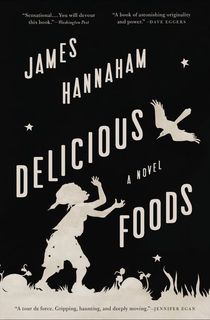
Delicious Foods
Darlene is a young mother struggling to deal with the death of her husband. Turning to drugs to numb her pain, she is lured with the promise of a great job to a mysterious farm run by a shady company. But her dreams of a better life are just that.
This “business” is essentially modern-day slavery, with Darlene kept drugged up and forced to work in illegal conditions, accruing debts that nobody could ever hope to pay off. When Darlene doesn't come home, her son Eddie finds himself wandering the dark and dangerous streets looking for her.
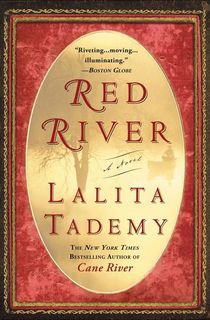
Red River
For the newly-freed Black residents of Colfax, Louisiana, the beginning of Reconstruction promised them the liberation that they'd long been denied: the right to vote, the chance to own property, and autonomy over their destines. Tademy saw a chance to start a school for his children and neighbors. His friend Israel Smith was ready to start a community business.
But in the space of a day, marauding whites would "take back" Colfax in one of the deadliest cases of racial violence in the South. After the bloodshed, Sam and Israel fight to regain their dreams and to make a future for their descendants, scraping to get the lives they are owed and battle the injustice that never really goes away.
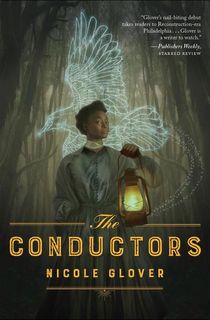
The Conductors
As a conductor on the Underground Railroad, Hetty Rhodes helped usher dozens of people north to escape slavery. Now that the Civil War is over, Hetty and her husband Benjy have settled in Philadelphia. As a magic user and conductor, Hetty has found a new use for her abilities, solving murders and mysteries in the area that the white authorities have ignored.
When they find one of their friends slain in an alley, Hetty and Benjy bury the body and set off to find answers. But the secrets and intricate lies of the elites of Black Philadelphia hide a world of secrets and trauma that nobody wants to confront.
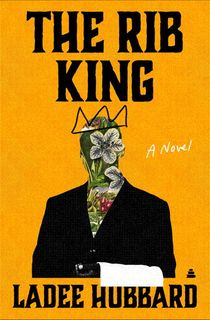
The Rib King
For fifteen years August Sitwell has worked for the Barclays, a well-to-do white family who found him in an orphan asylum and "graciously" offered him a job as their groundskeeper. He's part of the family's all-Black staff, which includes the pretty new maid Jennie, three kitchen apprentices, and the cook "Miss Mamie." But the Barclay's fortunes have fallen and they're now broke.
When a prospective business associate proposes selling Miss Mamie’s delicious rib sauce to local markets under the brand name “The Rib King,” Mr. Barclay agrees. But Miss Mamie doesn't see a dime from its success and neither does August, even though the bottles bear the image of a wildly racist caricature of him as their logo. As The Rib King becomes a nationwide hit, August grows ever-more humiliated and furious at a world that has done nothing but exploit and degrade him.
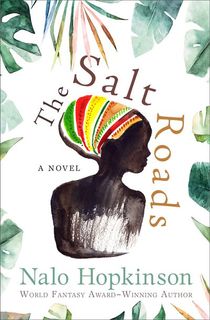
The Salt Roads
In 1804, shortly before the Caribbean island of Saint Domingue is renamed Haiti, a group of women gather to bury a stillborn baby. Led by a lesbian healer and midwife named Mer, the women’s grief accidentally unleashes the dead child's "unused vitality" and entices Ezili, the Afro-Caribbean goddess of sexual desire and love, into their world.
As Ezili explores her newfound powers, she travels across time and space to inhabit the midwife’s body as well as those of women like Jeanne, a mixed-race dancer and the mistress of Charles Baudelaire living in 1880s Paris, and Meritet, an enslaved Greek-Nubian prostitute in ancient Alexandria. The three women are bound together by their grief and struggles as Black women across the centuries in a world that hates them.
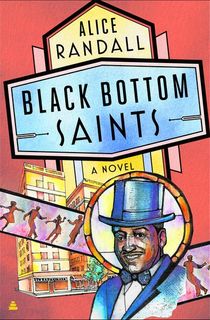
Black Bottom Saints
Joseph “Ziggy” Johnson, has been at the heart of Detroit’s famous Black Bottom for decades. A celebrated gossip columnist for the city’s African-American newspaper, the Michigan Chronicle, he is also the emcee of one of the hottest night clubs in town. There, he mingles with undisputed legends of Black art and culture, like Ethel Waters, Billy Eckstein, and Count Basie.
Now dying in his hospital bed, Ziggy reflects on his past, the community he helped to foster, and the future he paved the way for. Inspired by the Catholic Saints Day Books, Ziggy curates his own list of Black Bottom’s 52 saints, including Dinah Washington, Joe Louis, and Bricktop, as well as local heroes who were otherwise forgotten by history.
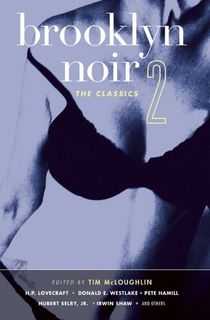
Brooklyn Noir 2
Brooklyn is the setting of some of the most iconic fiction of our time, and it's the perfect setting for a classic noir. In this collection, a slew of beloved and influential writers take on the famous New York borough with a selection of crime stories. The contributors are as varied as H.P. Lovecraft, Hubert Selby Jr., Jonathan Lethem, and Nickel Boys author Colson Whitehead!
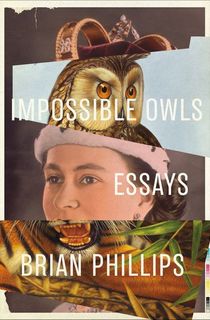
Impossible Owls
Writer and critic Brian Phillips' debut essay collections tackles some of the world's weirdest and most unbelievable oddities—and according to Colson Whitehead himself, they're “hilarious, nimble, and thoroughly illuminating”. He goes on the Iditarod Trail Sled Dog Race in Alaska to see first-hand how this incredible race works. He learns about sumo wrestling in modern-day Japan, the mysteries of the legendary Route 66, and man-eating tigers. His travels, combined with his unique voice, offer a fresh insight into our weird, wonderful, and often inexplicable world.
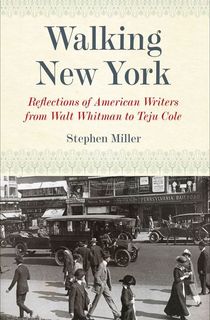
Walking New York
New York is a hub of art and inspiration, but not every writer who has walked its streets was delighted by what they saw. In this idiosyncratic guidebook to the city, some of the most celebrated authors of the past century and beyond ruminate on the so-called magic of New York, its pros and cons, and how it has (or hasn't) changed over time.
Henry James loathed many things about “bristling” New York, for example. Walt Whitman, a native New Yorker, had mixed feelings on what he called "Manahatta." Other contributors to this collection include Herman Melville, Colson Whitehead, and Elizabeth Hardwick.
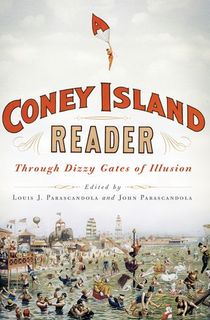
A Coney Island Reader
Coney Island long been a place of fun and fantasy for native New Yorkers and tourists to the city alike. Its famous boardwalk, expansive beach, and circus-like entertainments have symbolized an escape from the grim and grit of the real world for many decades.
This anthology captures the highs and lows of Coney Island's lore, a place that is simultaneously a giddy playground, a symbol of America's freedom, a place of near-mythical deviance, and a representation of capitalism at its most garish. This collection includes works from writers and essayists like Walt Whitman, Federico García Lorca, Isaac Bashevis Singer, and Colson Whiteread.
